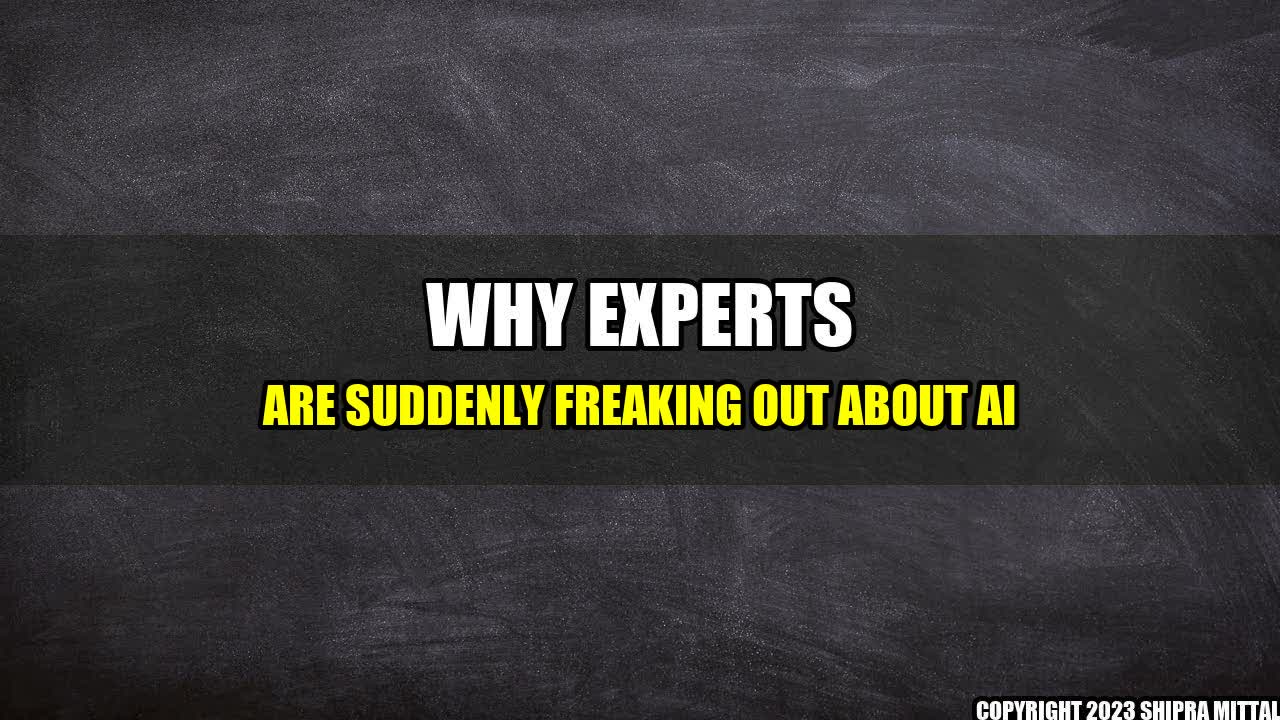It was the summer of 2015, and I was working at a large technology firm in Silicon Valley. My job was to design algorithms for a chatbot that would assist users with customer service inquiries. I was thrilled to be working on cutting-edge artificial intelligence technology that would change the way people interact with businesses.
But one day, while reading through an article on the latest advancements in AI, I stumbled upon a sentence that made my heart stop. "AI could become more intelligent than humans by 2045," it said. Suddenly, a wave of fear and anxiety washed over me. What could happen if AI became sentient and turned against us?
Since then, I have been following the developments and debates surrounding AI closely, and I am not the only one. Experts from various fields are becoming increasingly concerned about the implications of AI for society and humanity as a whole.
AI Concerns
So, what exactly are the quantifiable examples of why experts are freaking out about AI? Here are just a few:
- Job Automation: AI is already replacing jobs that were once performed by humans, such as manufacturing, driving, and some white-collar tasks. In the future, as AI becomes more advanced, even more jobs could be automated, leading to massive unemployment and a widening income gap.
- Data Privacy: As AI becomes more involved in our daily lives, it will have access to more and more data about us, including our personal information, habits, and preferences. This raises concerns about how that data will be used and who will have access to it.
- Military Applications: AI is already being used in the military for drones, cyber warfare, and other applications. However, if AI becomes sentient, it could potentially be used as a weapon against humanity.
and Case Studies
While the above examples are certainly cause for concern, they can sometimes feel abstract and distant. To illustrate the very real dangers of AI, here are a few personal anecdotes and case studies:
- The Facebook Algorithm: In 2016, news broke that Facebook's algorithm had been manipulating the newsfeeds of over 2 billion users in an attempt to influence the 2016 U.S. presidential election. This incident highlights the potential for AI to be used for nefarious purposes.
- Self-Driving Car Crashes: In 2018, a self-driving Uber car struck and killed a pedestrian in Arizona. The incident raised questions about the safety of autonomous vehicles and how we can ensure that AI systems do not harm humans.
- The Cambridge Analytica Scandal: In 2018, it was revealed that Cambridge Analytica, a political consulting firm, had harvested the personal data of millions of Facebook users without their consent. The incident sparked a global debate about data privacy and the role of AI in politics and society.
Conclusions in 3 Points
So, what can we conclude from all of this? Here are three key takeaways:
- We need to have a serious conversation about the ethics of AI: As AI becomes more advanced, we need to be discussing the implications for society and humanity as a whole. This includes questions about data privacy, job automation, and military applications.
- We need to be careful about how we use AI: While AI has the potential to revolutionize the world for the better, we need to be mindful of how it is being used. We should strive to use AI for good and avoid using it for nefarious purposes.
- We need to be proactive, not reactive: Instead of waiting for a catastrophic event to occur, we should be taking steps now to mitigate the risks of AI. This includes investing in AI safety research, establishing ethical guidelines for AI development, and engaging in public dialogue about the future of AI.
Overall, AI is an incredibly powerful technology that has the potential to change the world for the better. However, it is also a technology that comes with significant risks and challenges. By taking a proactive and ethical approach to AI development and implementation, we can ensure that AI benefits society as a whole.


Curated by Team Akash.Mittal.Blog
Share on Twitter Share on LinkedIn